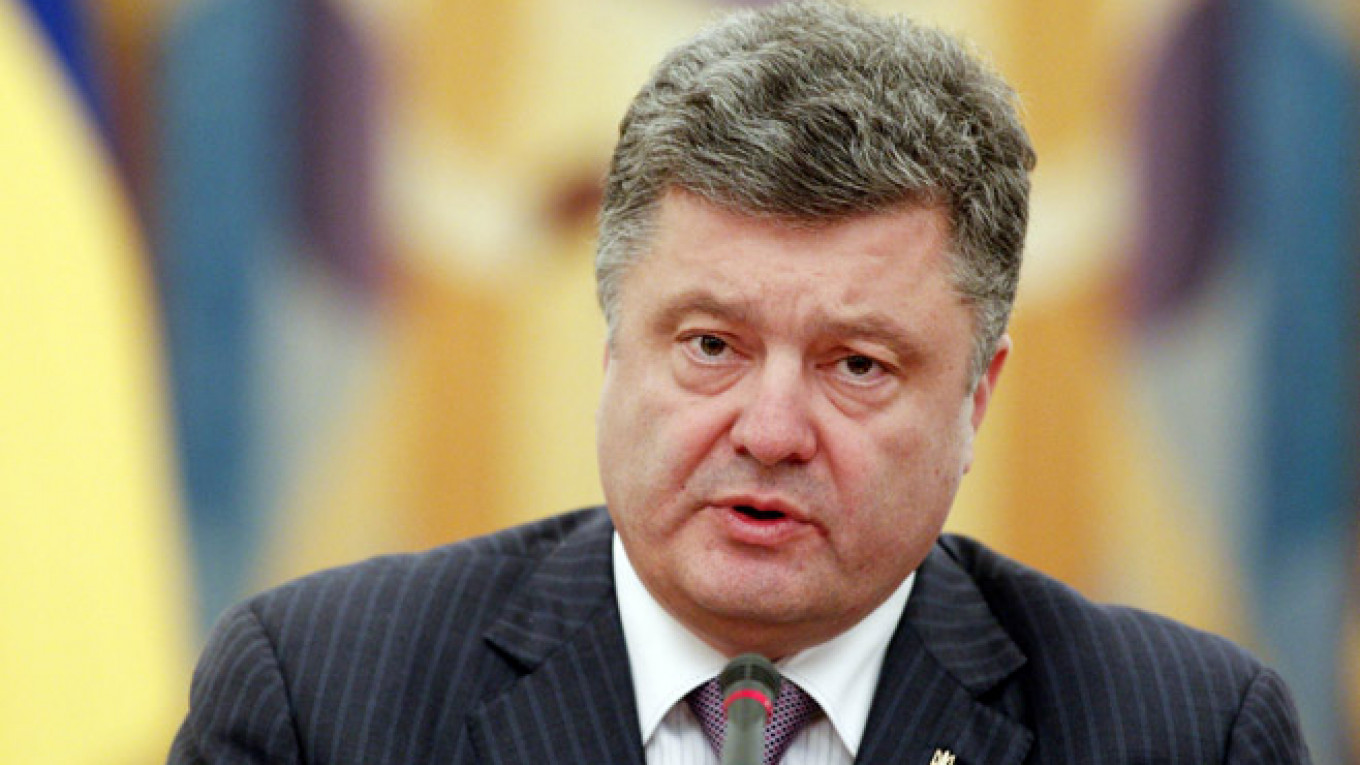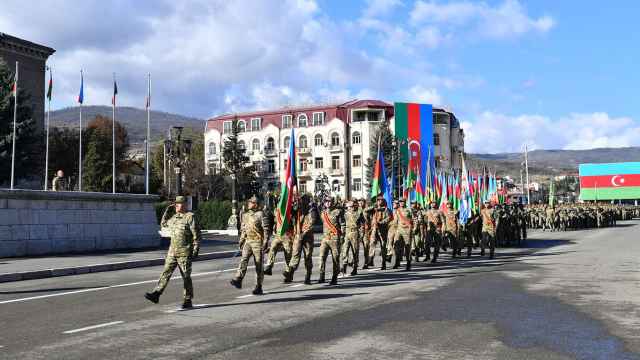Ukrainian President Petro Poroshenko announced a one-sided cease-fire in the southern and eastern regions of the country. Separatists responded with continued gun and artillery fire.
Considering that the separatists adamantly oppose making any concessions on their demands to Kiev, achieving a bilateral cease-fire will prove difficult. The truce ends today, the same day that Ukraine is slated to sign the economic part of its Association Agreement with the European Union.
In fact, former Ukrainian President Viktor Yanukovych sparked the current crisis by first agreeing and later refusing to sign such a document. This leads to the question of the Ukrainian economy, and more pointedly: Is there anything left to save?
A trade war is inevitable, and Ukraine stands to suffer significant losses as a result.
The Ukrainian economy shrunk by 0.3 percent last year, and Ukrainian Prime Minister Arseniy Yatsenyuk predicts that it will shrink by another 3 percent this year, even with foreign financial assistance — and by 10 percent without it.
Kiev must augment its coffers by $35 billion simply to pay down its current obligations over the next two years. That does not include the $4.5 billion Gazprom is demanding for past gas deliveries, but that Kiev is refusing to pay in a dispute over pricing policy. Those negotiations have stalled and probably will not resume until fall, when the gas reserves that Ukraine prudently pumped into underground storage facilities finally run out.
The International Monetary Fund and other international donors have promised Kiev almost $32 billion in aid to stave off default, but have actually delivered only a tiny portion of that sum.
However, that assistance is conditional upon Kiev implementing economic austerity measures that could prove politically untenable for Poroshenko. Ukrainians already pay 50 percent more for gas, with the result that fewer can pay their gas bill at all. The government plans to freeze minimum salaries to state employees and to slash their ranks by at least 10 percent.
The Ukrainian economy is already weakened by 20 years of its corrupt leaders' incessant looting. Back in 1992, the Ukrainian economy was roughly the size of Poland's. Now, Poland's is twice as large. The shadow economy now accounts for up 40 percent to 45 percent of the Ukrainian economy and Transparency International has ranked the country 144th out of 177 on its corruption index.
The Association Agreement may help Ukraine's economy by creating a free trade zone and opening the Ukrainian market to European imports, but where will locals find the money to buy those goods?
Moscow has stressed that, because the flow of European goods into Ukraine will threaten the Russian market, it must move to protect its own interests. In theory, Moscow could avoid declaring a full-scale trade war by simply "filtering out" European goods as they pass through Russian customs with the bogus claim that their EU certification does not meet Russian standards.
But Moscow long ago made it clear that it prefers the strong-arm approach to a more nuanced policy. A trade war is inevitable, and Ukraine stands to suffer significant losses as a result. According to estimates made by the Committee for Civil Initiatives — a think tank headed by former Finance Minister Alexei Kudrin — Ukraine could lose $33 billion, or 19 percent of its gross domestic product annually as a result of signing the economic part of the Association Agreement and the resultant loss of trade with Russia and other Customs Union countries. That figure includes a possible decline in export earnings and investment, and the reduced ability of Ukrainian citizens to work in Russia and send money home.
Ukraine will also suffer from the higher price of gas, lower earnings for the transit of Russian gas through Ukraine, a decline in tourism and so on. In all, analysts estimate that a radical rupture with Russia could cost Ukraine up to $100 billion.
Cynically speaking, if Moscow's goal is to finish off the Ukrainian state, it can forego sending in troops and simply wait until the country collapses under the weight of its enormous economic losses. Only an iron-handed approach could save the Ukrainian economy under such circumstances. However, it is unlikely that the current authorities in Kiev are capable of implementing stringent economic measures like those once employed by former Chilean President Augusto Pinochet.
Kiev has not even begun the economic reforms that it needs with the urgency of a patient wheeled into intensive care. Instead, Kiev finds itself bogged down in a war in the eastern and southern regions of the country.
The complex relationship between the various Ukrainian regions only complicates the picture. For example, it turns out that the rebellious Donetsk and Luhansk regions receive the most government subsidies — $778 million and $421 million respectively.
In the past five years, the coal miners in those regions received a total of $5 billion in assistance, $1.1 billion in the last year alone. However, western regions such as Zakarpattia, Ivano-Frankivsk and Volyn receive the most subsidies per capita.
And yet the coal in the eastern regions plays a crucial role in the energy balance of the country — primarily for domestic heating — and the east also produces the lion's share of Ukraine's GDP, without which the western regions could not survive economically.
But the paradox is that the east cannot manage on its own without the west: their economies are roughly equal in size and complement each other. They would do better to finally sit down together at the negotiating table and reach a solution. Instead, they continue killing each other.
Georgy Bovt is a political analyst.
A Message from The Moscow Times:
Dear readers,
We are facing unprecedented challenges. Russia's Prosecutor General's Office has designated The Moscow Times as an "undesirable" organization, criminalizing our work and putting our staff at risk of prosecution. This follows our earlier unjust labeling as a "foreign agent."
These actions are direct attempts to silence independent journalism in Russia. The authorities claim our work "discredits the decisions of the Russian leadership." We see things differently: we strive to provide accurate, unbiased reporting on Russia.
We, the journalists of The Moscow Times, refuse to be silenced. But to continue our work, we need your help.
Your support, no matter how small, makes a world of difference. If you can, please support us monthly starting from just $2. It's quick to set up, and every contribution makes a significant impact.
By supporting The Moscow Times, you're defending open, independent journalism in the face of repression. Thank you for standing with us.
Remind me later.







